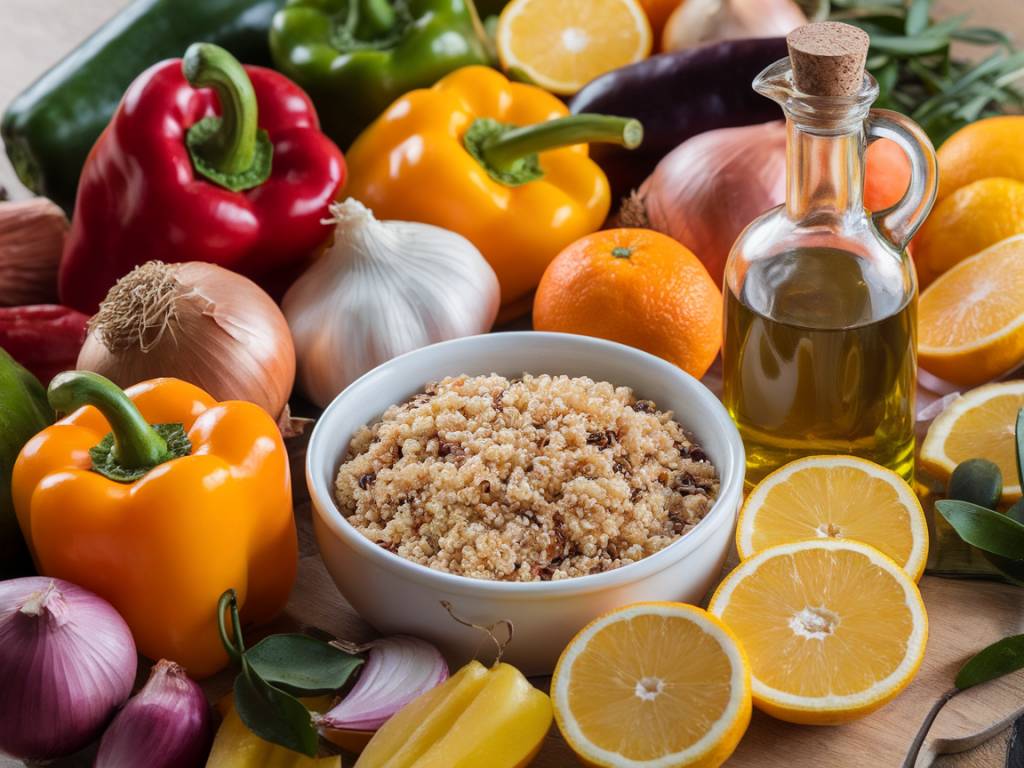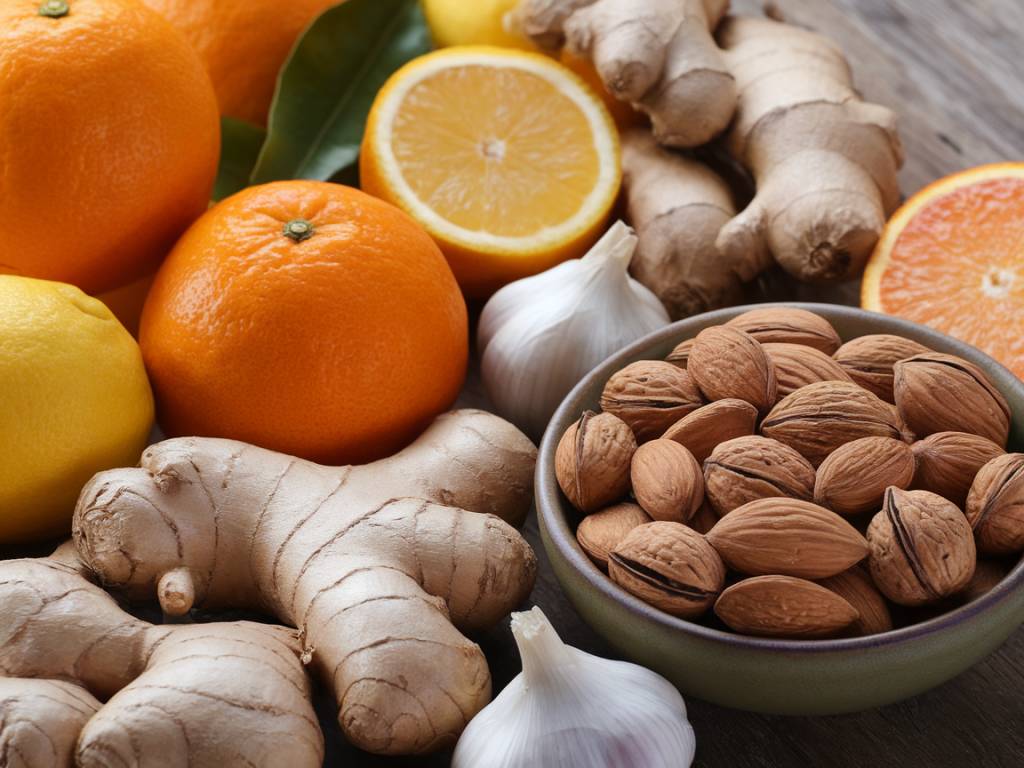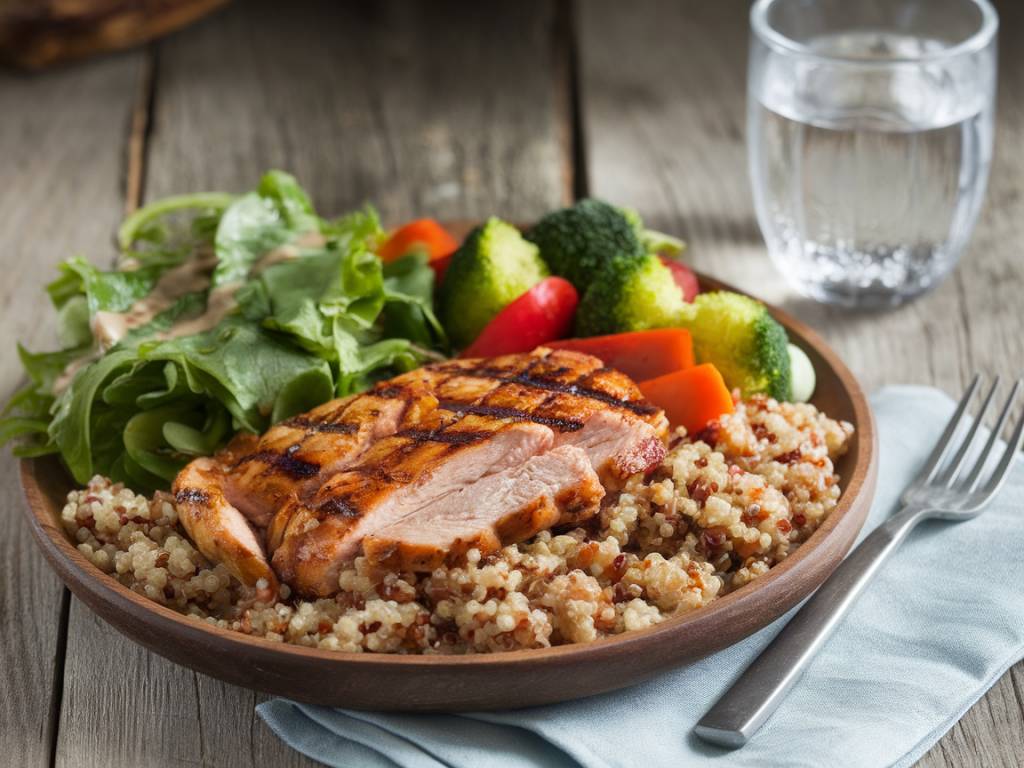Understanding Inflammation and Its Impact on Your Health
Inflammation is a natural response of the immune system, designed to protect the body from injury and infection. However, when it becomes chronic, it can contribute to serious health issues such as heart disease, diabetes, arthritis, and even depression. The good news? Your diet plays a significant role in controlling inflammation, and by choosing the right foods, you can naturally support your body’s healing processes.
The Connection Between Food and Inflammation
What you eat can either fuel inflammation or help reduce it. Processed foods, excessive sugar, and unhealthy fats can trigger an inflammatory response, while whole, nutrient-rich foods have the opposite effect. By making smarter food choices, you can balance your body’s inflammatory response and promote overall well-being.
The Best Anti-Inflammatory Foods to Include in Your Diet
Adding the following nutrient-dense foods to your diet can help combat inflammation and support long-term health:
- Berries – Blueberries, strawberries, and raspberries are packed with antioxidants and compounds that reduce inflammation.
- Fatty Fish – Salmon, sardines, and mackerel are rich in omega-3 fatty acids, which have powerful anti-inflammatory effects.
- Leafy Greens – Spinach, kale, and Swiss chard provide essential vitamins and minerals while reducing inflammation.
- Olive Oil – A staple of the Mediterranean diet, extra virgin olive oil is rich in healthy fats and polyphenols.
- Nuts and Seeds – Almonds, walnuts, flaxseeds, and chia seeds are excellent sources of omega-3s and fiber.
- Turmeric – This bright yellow spice contains curcumin, a compound known for its strong anti-inflammatory properties.
- Ginger – Often used as a natural remedy for pain and digestive issues, ginger contains antioxidants that fight inflammation.
- Green Tea – Loaded with polyphenols, green tea offers numerous anti-inflammatory and antioxidant benefits.
- Garlic – Known for its immune-boosting qualities, garlic contains sulfur compounds that help reduce inflammation.
- Tomatoes – Rich in vitamin C and lycopene, tomatoes can help lower inflammatory markers in the body.
Foods to Avoid That May Increase Inflammation
To keep inflammation at bay, it’s equally important to limit or avoid inflammatory foods. Here are some of the worst offenders:
- Refined Carbohydrates – Processed breads, pastries, and white rice can spike blood sugar and increase inflammation.
- Sugary Beverages – Sodas and sweetened drinks contribute to insulin resistance and inflammation.
- Processed Meats – Bacon, sausages, and deli meats contain additives and unhealthy fats that trigger inflammation.
- Fried and Fast Foods – High in trans fats and preservatives, these foods promote chronic inflammation.
- Excessive Alcohol – Alcohol in large quantities can imbalance gut bacteria and promote inflammation.
How to Incorporate Anti-Inflammatory Foods into Your Daily Routine
Making small, consistent changes to your diet can have a lasting impact on reducing inflammation. Here are some simple ways to incorporate anti-inflammatory foods into your meals:
- Start Your Day with a Smoothie – Blend berries, spinach, ginger, and chia seeds for a nutrient-dense breakfast.
- Swap Cooking Oils – Use extra virgin olive oil instead of refined vegetable oils.
- Opt for Whole Grains – Choose quinoa, brown rice, or whole wheat instead of refined grains.
- Experiment with Turmeric – Add it to soups, curries, or mix with warm almond milk for a golden latte.
- Snack on Nuts and Seeds – Keep a handful of almonds or walnuts for a quick and nutritious snack.
- Replace Sugary Beverages – Drink green tea or infused water instead of soft drinks.
The Role of Lifestyle in Reducing Inflammation
While diet plays a crucial role, other lifestyle factors also contribute to inflammation. Here are some additional habits to adopt:
- Stay Active – Regular exercise helps regulate the immune system and combat chronic inflammation.
- Prioritize Sleep – Poor sleep can increase inflammation and affect overall health.
- Manage Stress – Chronic stress triggers inflammatory responses, so consider meditation, yoga, or deep breathing.
- Stay Hydrated – Drinking enough water supports optimal cellular function and flushes out toxins.
Final Thoughts
Reducing inflammation is not about a restrictive diet but about making mindful choices that nourish your body. By incorporating anti-inflammatory foods and adopting a balanced lifestyle, you can support your long-term health and feel your best. Remember, small daily changes add up over time—so start today and enjoy the benefits of a healthier, inflammation-fighting diet.



